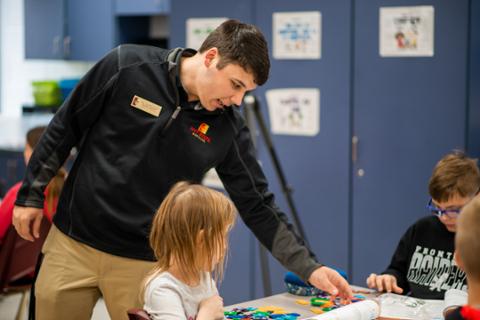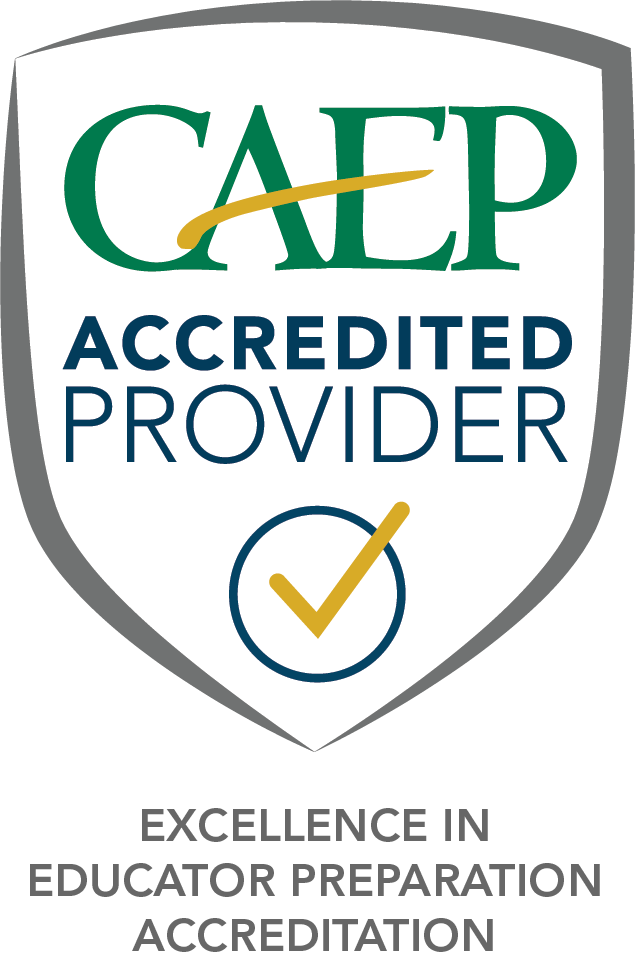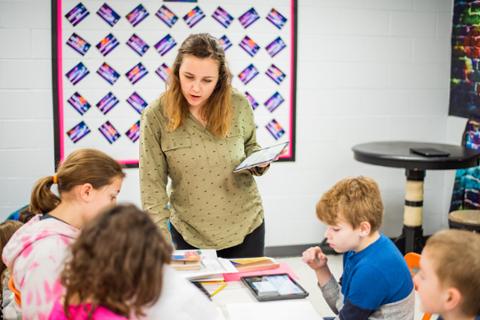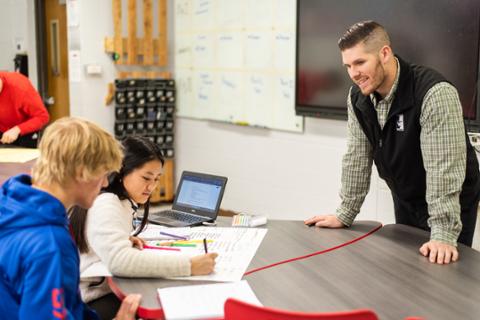Online Master's Degree in
Reading


Do you have a passion for helping students become successful readers and writers?
The graduate Reading program at Pitt State, grounded in Science of Reading research and principles of Structured Literacy, is designed for teachers who want to pursue a career as a Reading Specialist, Literacy Coach, and Literacy Leader, or enhance your skills as an expert reading teacher in the classroom. This fully online program is aligned to the Knowledge and Practice Standards for Teachers of Reading, the International Literacy Association Standards for Reading Professionals, and is fully accredited by CAEP and the Kansas State Department of Education.
Decide which pathway is right for you:
Master of Science in Reading with Reading Specialist Licensure

Learn from seasoned educators and professionals who bring a wealth of real-world experience to the online classroom. Benefit from their guidance as you further explore your education.

Learn how to select and administer literacy assessments and diagnostics in your own school or district for planning and implementation of targeted instructional interventions to meet the diverse needs of struggling readers and writers.

Stand out in the competitive job market with a Reading Master's degree. Pursue a variety of rewarding careers such as a Reading Specialist or Literacy Coach.
Jobs of Reading Master's Graduates
- Reading Specialist: Work in schools or educational organizations to provide specialized instruction and support to students who struggle with reading and literacy skills.
- Literacy Coach: Collaborate with teachers to improve literacy instruction, develop curriculum materials, and implement evidence-based practices to enhance reading outcomes.
- Curriculum Developer: Design and create literacy curriculum materials, assessments, and instructional resources for schools, districts, or educational publishers.
- Intervention Specialist: Design and implement targeted literacy interventions and support programs for students who are at risk of falling behind in reading proficiency.
- Program Coordinator: Oversee literacy programs or initiatives within schools or districts, coordinating resources, providing leadership, and facilitating collaboration among stakeholders.
- Assessment Specialist: Administer and interpret literacy assessments, analyze data, and provide recommendations for instructional planning and intervention strategies.
- Adult Literacy Instructor: Teach literacy skills to adult learners through community organizations, literacy centers, or adult education programs.
Emphases available
Prepare to become a licensed reading specialist and gain the expertise to support struggling readers. Learn to assess, diagnose, and develop intervention plans to improve students' reading abilities. Explore current research in literacy education, and develop the skills to design and implement effective reading programs that meet the needs of diverse learners. This program will equip you with the knowledge and tools to make a positive impact on students' lives and help them achieve success in reading.